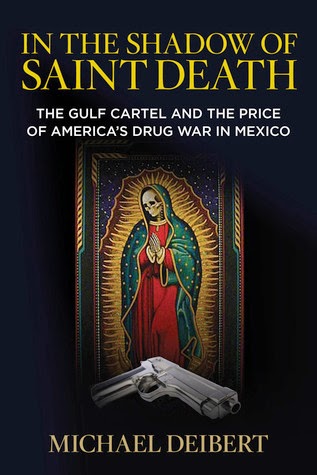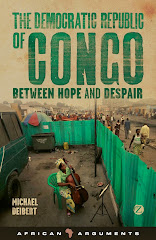3 November 2017
In the heart of Afro-Puerto Rican culture, a halting recovery 1 month after Hurricane Maria
By Michael Deibert
LNP
(Read the original article here)
The modern Puerto Rico is a mélange of indigenous, European and African cultures (with a heavy dose of American influence due to its long relationship as a U.S. territory), but it is here that the country's African heart beat the strongest.
An hour outside of the capital, San Juan, and across the swollen Río Grande de Loíza, memorialized in a famous poem by Julia de Burgos, the streets of Loíza often echo with the rhythms of bomba, a traditional, percussion-heavy musical style based on the interplay of drums.
No amount of ebullience, however, prepared the town for Hurricane Maria when it descended at the end of September. With hundreds of houses totally or partially destroyed and the city's electricity grid leveled, Loíza, whose cultural vibrancy has often been matched by its economic poverty, finds itself fighting for survival.
'Things are slowly getting better'
"This is the only town on the island where a majority of residents are of African descent," says Raul Ayala, whose family are widely regarded as the caretakers of some of the town's traditions. He is sitting in the courtyard of the half-destroyed house of his sister, its roof gone and water still pooling on its floors from a recent rain.
In the heart of Afro-Puerto Rican culture, a halting recovery 1 month after Hurricane Maria
By Michael Deibert
LNP
(Read the original article here)
LOIZA, Puerto
Rico — Spread out over several barrios extended like a sleeping
bather's hand along Puerto Rico's northeastern coast, this city of
30,000 has long played host to the most vibrant Afro-Puerto Rican
culture on the island.
The modern Puerto Rico is a mélange of indigenous, European and African cultures (with a heavy dose of American influence due to its long relationship as a U.S. territory), but it is here that the country's African heart beat the strongest.
An hour outside of the capital, San Juan, and across the swollen Río Grande de Loíza, memorialized in a famous poem by Julia de Burgos, the streets of Loíza often echo with the rhythms of bomba, a traditional, percussion-heavy musical style based on the interplay of drums.
Every year in
July, the town hosts a festival during which it explodes with color,
complete with music, distinctive cuisine and people donning costumes
featuring máscaras de vejigante, colorful masks based on characters from
Puerto Rican folklore.
No amount of ebullience, however, prepared the town for Hurricane Maria when it descended at the end of September. With hundreds of houses totally or partially destroyed and the city's electricity grid leveled, Loíza, whose cultural vibrancy has often been matched by its economic poverty, finds itself fighting for survival.
'Things are slowly getting better'
"This is the only town on the island where a majority of residents are of African descent," says Raul Ayala, whose family are widely regarded as the caretakers of some of the town's traditions. He is sitting in the courtyard of the half-destroyed house of his sister, its roof gone and water still pooling on its floors from a recent rain.
"Things are
slowly getting better, and we're getting up little by little," Ayala
says. "But we still have problems. … It's imperative to re-establish
electricity so things can function. Lots of companies remain closed, and
people who don't work don't have salaries, so it's a domino effect."
That
things have not yet returned to normal is clear from the hundreds of
people lined up to receive food in the town's central plaza, where half a
dozen Puerto Rican businesses and organizations have organized a
distribution of vital items.
"We're giving food, water, baby food, diapers and all the necessities that people need here," says José Martorell, who works with La Estrella, a chain of restaurants that delivers comida criolla, low-cost Puerto Rican and Cuban food. "In San Juan, we're the fortunate ones that have generators and water, and we needed to give back to the community."
"We Puerto Ricans are very strong people, but no one was prepared for a hurricane like this," says Frankie Colón of the Fundación Caritas Alegres, a nonprofit organization that provides assistance to children and families with limited resources to meet their health, education and housing needs.
"There is so much to done, it's not going to be a one week effort," he said. "It's going to be years to come of people working together."
'We can help each other'
Across town at the Escuela Celso González Vaillant, around 25 people remain camped out in classrooms that have yet to reopen for the school year, sheltered there after their own homes were destroyed in the storm.
"We're giving food, water, baby food, diapers and all the necessities that people need here," says José Martorell, who works with La Estrella, a chain of restaurants that delivers comida criolla, low-cost Puerto Rican and Cuban food. "In San Juan, we're the fortunate ones that have generators and water, and we needed to give back to the community."
A little further down the line, another volunteer agrees.
"We Puerto Ricans are very strong people, but no one was prepared for a hurricane like this," says Frankie Colón of the Fundación Caritas Alegres, a nonprofit organization that provides assistance to children and families with limited resources to meet their health, education and housing needs.
"There is so much to done, it's not going to be a one week effort," he said. "It's going to be years to come of people working together."
'We can help each other'
Across town at the Escuela Celso González Vaillant, around 25 people remain camped out in classrooms that have yet to reopen for the school year, sheltered there after their own homes were destroyed in the storm.
"Were waiting
for a lot of things [that have been] promised us and haven't given us,"
says 67 year-old Esther Santiago Jiménez, who has been living in the
school since the storm and grew up in New York and Boston. "It's not
easy, we don't have much help from the government, but we can help each
other."
Like other parts of Puerto Rico — 70 percent of the island by last count — the hurricane has left Loíza in the dark, with no power since the end of September, and with only sporadic gurgles of water coming out of its taps.
Back in the courtyard of his family's home, its walls still radiating a vivid Caribbean orange and green despite its damage, Raul Ayala tells a visitor that in two years the town will celebrate the 60th anniversary of his family's cultural group, the Ballet Folklórico Hermanos Ayala, founded by his father and a mainstay of Puerto Rican television variety shows over the years. He believes the town must rebuild.
"In the cultural life of Puerto Rico," Ayala says. "Loíza is the town that really represents the African traditions."
Like other parts of Puerto Rico — 70 percent of the island by last count — the hurricane has left Loíza in the dark, with no power since the end of September, and with only sporadic gurgles of water coming out of its taps.
Back in the courtyard of his family's home, its walls still radiating a vivid Caribbean orange and green despite its damage, Raul Ayala tells a visitor that in two years the town will celebrate the 60th anniversary of his family's cultural group, the Ballet Folklórico Hermanos Ayala, founded by his father and a mainstay of Puerto Rican television variety shows over the years. He believes the town must rebuild.
"In the cultural life of Puerto Rico," Ayala says. "Loíza is the town that really represents the African traditions."




No comments:
Post a Comment